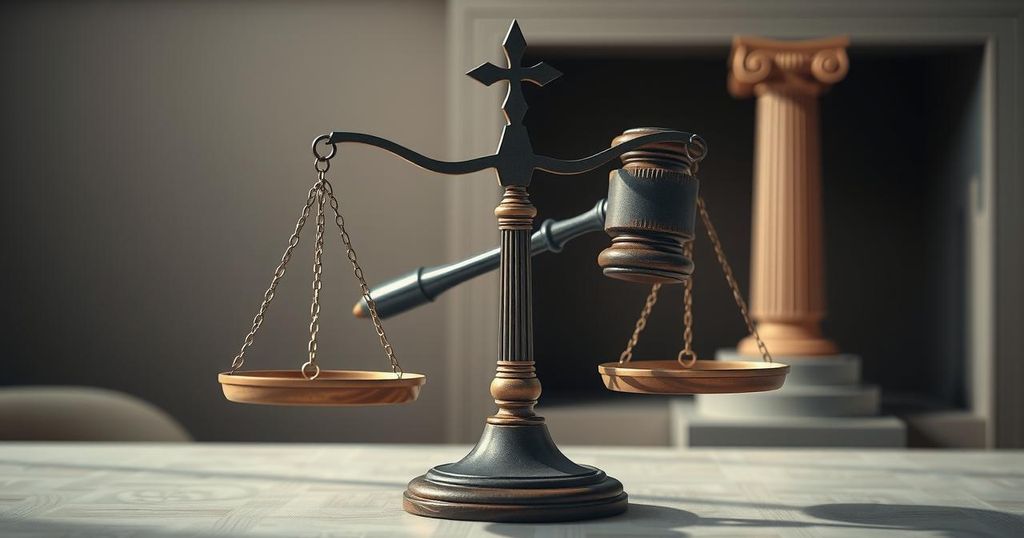A major trial began in Tunisia involving 40 opposition figures accused of conspiring against state security. Activists claim the charges are politically motivated, reflecting a broader crackdown on dissent. Amid protests, defendants face serious charges including links to terrorism, while the Tunisian government asserts these actions are vital for national stability and security.
On March 4, 2025, a notable trial commenced in Tunis, where 40 individuals, including prominent opposition figures, face charges of conspiring against state security. Activists assert that the proceedings are motivated by political aims, reflecting a crackdown on dissent. Outside the courthouse, protesters gathered, holding photographs of detainees and demanding their release, alleging the case lacks basis in fact.
Among those accused are former diplomats, business leaders, journalists, and human rights advocates, with some having been imprisoned for over two years awaiting trial. Notably, nine of the defendants were not permitted to attend, labeled as too dangerous by the court. Their legal representatives protested this decision, echoing the demands of the demonstrators outside.
The defendants face severe charges, including potential capital punishment, with allegations of connections to terrorist groups and foreign entities. Critics of President Kais Saied decry these charges, claiming they are fabricated. The president, re-elected for a second term, has referred to the accused as “traitors and terrorists,” amid accusations that he orchestrated a coup in 2021.
Tunisia, recognized as the origin of the Arab Spring, has experienced significant declines in civil liberties post-Saied’s assumption of power, resulting in sharp criticism from both national and international bodies. The government’s use of the judiciary to suppress dissent has been condemned by various rights organizations, adding gravity to the ongoing trial. Supporters of Saied contend these measures are crucial for stabilizing a nation afflicted by economic woes.
Human rights organizations, including the International Commission of Jurists, have condemned the trial and the treatment of the defendants. They emphasize that systematic rights violations during pre-trial processes severely undermine the prosecution’s legitimacy and the trial’s impartiality. Such assertions call into question the overall integrity of the legal proceedings against these opposition figures.
The trial of 40 opposition figures in Tunisia, marked by allegations of political motivations and significant restrictions on legal representation, highlights the ongoing tensions in the country’s political landscape. Critics argue the charges are unfounded, while government supporters claim such measures are necessary for national stability. The responses from local and international human rights organizations further underscore concerns regarding the legitimacy of the judicial process in Tunisia following recent governmental changes.
Original Source: apnews.com




